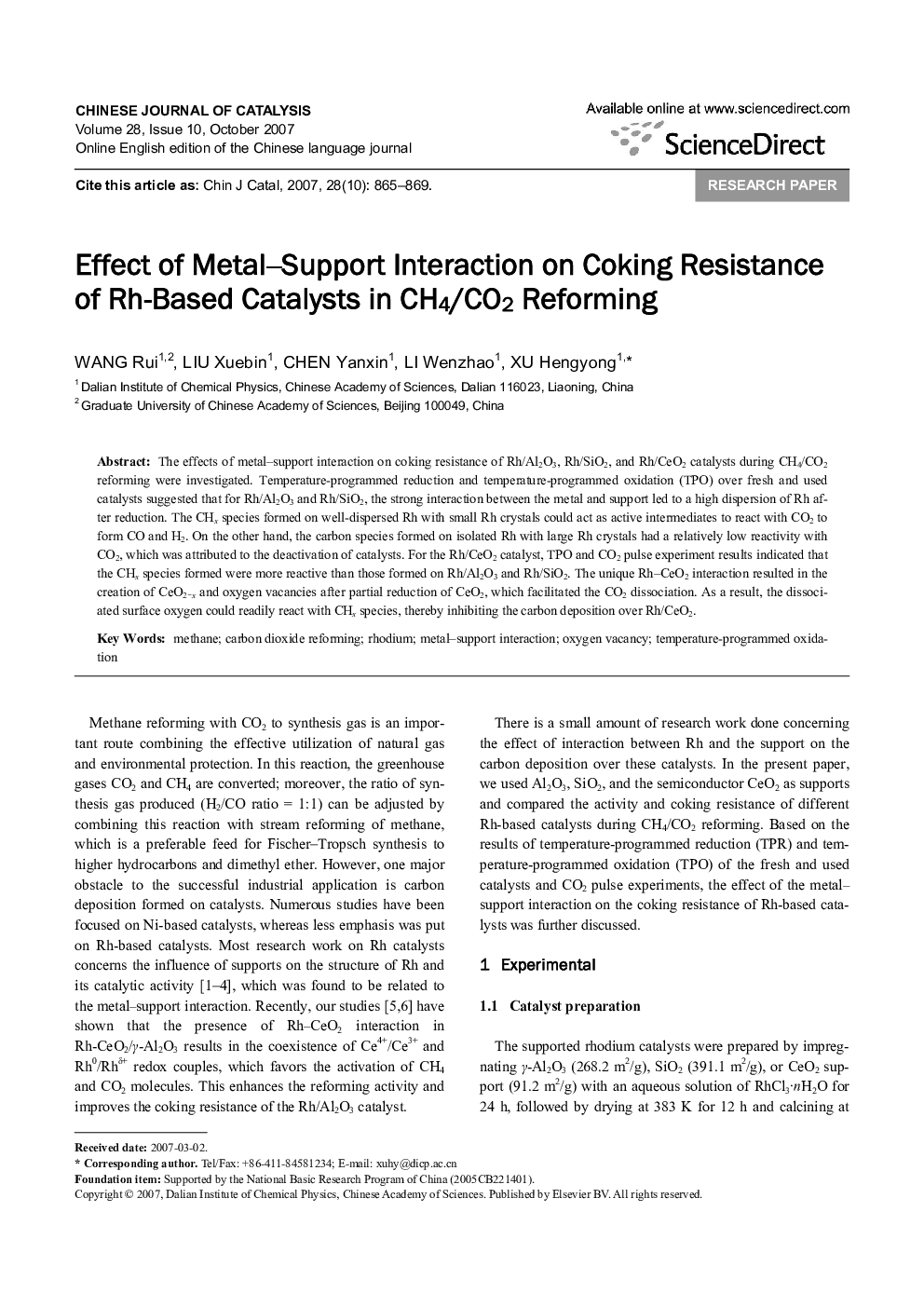| Article ID | Journal | Published Year | Pages | File Type |
|---|---|---|---|---|
| 60399 | Chinese Journal of Catalysis | 2007 | 5 Pages |
The effects of metal–support interaction on coking resistance of Rh/Al2O3, Rh/SiO2, and Rh/CeO2 catalysts during CH4/CO2 reforming were investigated. Temperature-programmed reduction and temperature-programmed oxidation (TPO) over fresh and used catalysts suggested that for Rh/Al2O3 and Rh/SiO2, the strong interaction between the metal and support led to a high dispersion of Rh after reduction. The CHx species formed on well-dispersed Rh with small Rh crystals could act as active intermediates to react with CO2 to form CO and H2. On the other hand, the carbon species formed on isolated Rh with large Rh crystals had a relatively low reactivity with CO2, which was attributed to the deactivation of catalysts. For the Rh/CeO2 catalyst, TPO and CO2 pulse experiment results indicated that the CHx species formed were more reactive than those formed on Rh/Al2O3 and Rh/SiO2. The unique Rh–CeO2 interaction resulted in the creation of CeO2–x and oxygen vacancies after partial reduction of CeO2, which facilitated the CO2 dissociation. As a result, the dissociated surface oxygen could readily react with CHx species, thereby inhibiting the carbon deposition over Rh/CeO2.
